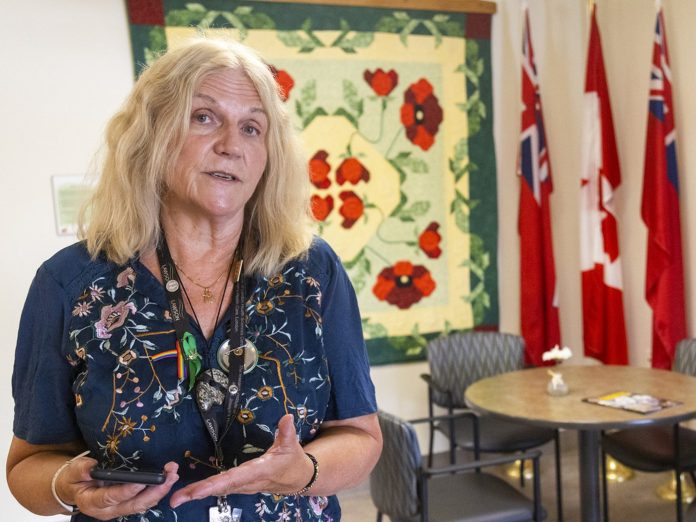
Brian Williams, Local Journalism Initiative Reporter, London Free Press
A London research team is getting more than $1 million from the federal government to study homelessness and its fallout among women military veterans in Canada.
Led by Cheryl Forchuk, assistant scientific director at the Lawson Health Research Institute, the team has already begun travelling to communities across the country to interview female veterans who are either homeless now or have experienced homelessness.
The study will run over four years. Its goal is to gather information to better understand the issue and to help shape programs and policies to care for homeless women veterans, with the military reportedly accounting for a disproportionate number of homeless Canadians.
“There has been no study in Canada specifically addressing women veteran needs – we want to make sure we can do it well enough and large enough that we don’t just have one size fits all but can really drill down into these issues,” Forchuk said.
“We’re trying to come up for solutions for women veterans who have experienced homelessness that makes sense to them.”
The federal government is providing $1.2 million to fund the study.
Forchuk said the new study was triggered “by conversations with women” in a previous study on both female and male homeless veterans, the results of which were published in 2015.
Several female veterans, she said, “expressed their dissatisfaction with the focus on male veterans.”
Forchuk called the plight of homeless women veterans “an important and yet often invisible problem.”
“Gender matters, especially when we’re talking about female veterans who are homeless. If they’ve experienced sexual trauma or abuse or have children, and the only veteran housing available is a group setting for men, that will be an issue,” she said.
The Lawson Health Research Institute is the research arm of London’s two hospitals, the London Health Sciences Centre and St. Joseph’s Health Care, and works in partnership with Western University. St. Joseph’s Health Care includes the Parkwood Institute, home to a major veterans’ care wing.
Forchuk said the team’s past research helped London become “the first community in Canada to functionally end veteran homelessness.”
“We found out from people what it would take to get them out of homelessness and developed that into some principles for programs and tested that in London, Toronto, Calgary and Victoria,” she said.
All but one veteran involved in the entire project found housing, she said.
For the latest project, researchers will gather demographic and other information, including about the history of housing and homelessness and services accessed by homeless women veterans. The locations where the team will go were chosen together with the Royal Canadian Legion and other groups serving veterans, focusing on areas with pockets of homeless women veterans, the health research institute said.
The study is an important step to help address “the unique challenges” faced by homeless women who served in the military and for the federal government’s efforts to end homelessness among veterans, said London North Centre Liberal MP Peter Fragiskatos.
bwilliams@postmedia.com

